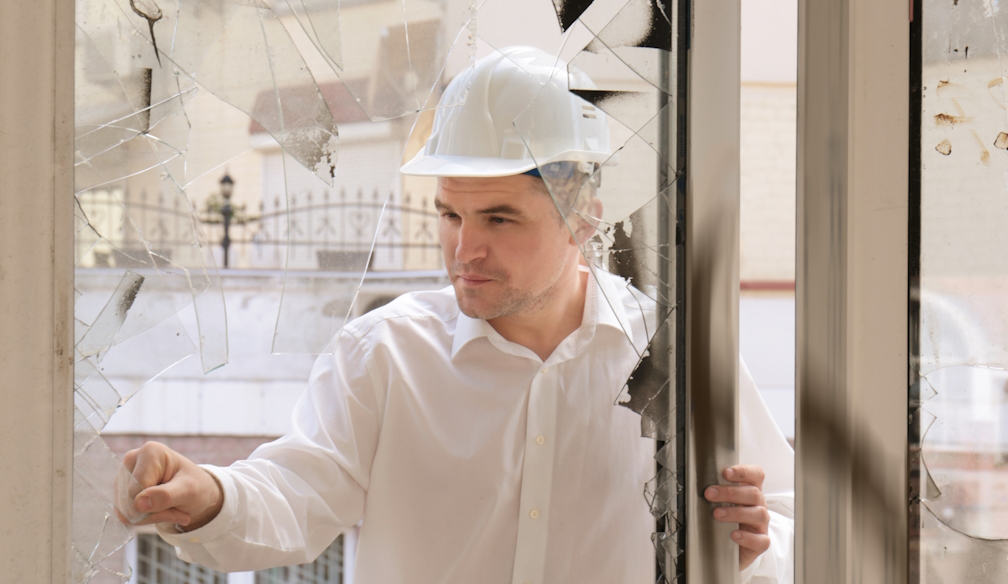Pre Purchase Home Inspections

As a prospective homebuyer, the process of purchasing a new home can be both exciting and overwhelming. One crucial aspect of this process is the pre-purchase home inspection. In this comprehensive guide, I will walk you through the essential information you need to know about pre-purchase home inspections, including their importance, cost factors, checklists, common issues, the role of termite inspections, finding qualified home inspectors, DIY versus professional inspections, negotiating repairs based on inspection reports, and a seller's perspective on pre-sale home inspections. By the end of this guide, you will be well-equipped to make informed decisions when it comes to pre-purchase home inspections.
Understanding the Importance of Pre Purchase Home Inspections
When embarking on the journey of buying a new home, it is crucial to understand the significance of a pre-purchase home inspection. This inspection is a comprehensive assessment of the property's condition, aiming to uncover any existing or potential issues that may impact its value or safety. A thorough pre-purchase home inspection can provide you with valuable insights into the property's structural integrity, functionality of its systems, and the presence of any hidden problems. By uncovering these issues early on, you can make informed decisions about the purchase and potentially avoid costly surprises in the future.
A pre-purchase home inspection not only serves to protect your investment but also provides an opportunity to renegotiate the purchase price or request repairs based on the findings. Additionally, it offers peace of mind, knowing that you are making an informed decision about the property you are about to invest in. Ultimately, understanding the importance of pre-purchase home inspections empowers you as a homebuyer to approach the process with confidence and clarity.
Pre Purchase Home Inspection Cost Factors
The cost of a pre-purchase home inspection can vary based on several factors. One of the primary considerations is the size and location of the property. Larger properties or those in remote areas may require more extensive inspections, resulting in higher costs. Additionally, the age and condition of the home can impact the inspection cost, as older properties or those with complex systems may require more time and expertise to assess thoroughly.
Furthermore, the scope of the inspection plays a significant role in determining the overall cost. Some inspections may include additional services, such as termite inspections or specialized assessments of specific systems like HVAC or plumbing. It's essential to inquire about the comprehensive cost breakdown and understand what specific services are covered within the inspection package. While cost is a crucial factor, it is important to prioritize the quality and thoroughness of the inspection to ensure that all relevant aspects of the property are adequately assessed.
Another consideration in the cost of pre-purchase home inspections is the reputation and experience of the home inspector. A seasoned and reputable inspector may charge higher fees, but their expertise and attention to detail can provide you with a more comprehensive evaluation of the property. Ultimately, understanding the cost factors associated with pre-purchase home inspections can help you budget effectively and prioritize the essential aspects of the inspection process.
The Pre Purchase Home Inspection Checklist
A comprehensive pre-purchase home inspection checklist serves as a crucial roadmap for evaluating the various components of a property. The checklist typically includes an extensive list of areas and systems that need to be assessed, ensuring that no aspect of the property is overlooked during the inspection process. Some key components of the pre-purchase home inspection checklist include the structural integrity of the building, the condition of the roof, exterior features such as siding and drainage, electrical systems, plumbing, heating, ventilation, and air conditioning (HVAC) systems, insulation, and the presence of any pests or environmental hazards.
In addition to these structural and mechanical elements, the checklist may also encompass factors such as the functionality of doors and windows, the condition of the foundation, the presence of mold or moisture damage, and the overall safety of the property. By following a detailed pre-purchase home inspection checklist, the inspector can methodically assess each area and provide you with a comprehensive report outlining the findings. This checklist serves as a valuable tool in ensuring that all critical aspects of the property are thoroughly evaluated, providing you with a clear understanding of its overall condition.
Common Issues Found in Pre Purchase Home Inspections
During the process of pre-purchase home inspections, various common issues may surface, impacting the property's value and safety. These issues can range from minor maintenance concerns to significant structural or mechanical deficiencies. Common findings in pre-purchase home inspections may include roof damage or deterioration, plumbing leaks or inadequate water pressure, electrical system deficiencies, HVAC malfunctions, insulation problems, and the presence of pests or termite infestations.
In addition to these physical issues, pre-purchase home inspections may uncover environmental concerns such as mold, asbestos, or radon, which can pose health risks and require immediate attention. Structural issues such as foundation cracks or settlement, as well as drainage problems that could lead to water damage, are also prevalent findings in home inspections. By being aware of these common issues, you can approach the inspection process with a heightened understanding of the potential challenges that may arise, allowing you to make informed decisions about the property and its associated risks.
The Role of Termite Inspections in Pre Purchase Home Inspections
Termite inspections play a critical role in pre-purchase home inspections, especially in regions where termite activity is prevalent. These inspections focus on identifying the presence of termites, wood-destroying insects, or any damage caused by these pests. Termites can cause significant structural damage to a property, compromising its integrity and requiring costly repairs. By including a termite inspection as part of the pre-purchase home inspection process, you can uncover any existing termite infestations or damage and take necessary measures to address these issues before finalizing the purchase.
In addition to termites, termite inspections may also encompass the assessment of other wood-destroying insects such as carpenter ants or wood-boring beetles, which can have similar detrimental effects on a property. The findings of the termite inspection can significantly influence your decision-making process as a homebuyer, allowing you to assess the extent of any termite-related damage and negotiate repairs or treatments with the seller. Understanding the role of termite inspections in pre-purchase home inspections is vital, particularly in regions where these pests pose a significant threat to property integrity.
Finding a Qualified Home Inspector
The expertise and thoroughness of the home inspector can greatly impact the quality of the pre-purchase home inspection. Therefore, finding a qualified and reputable home inspector is paramount in ensuring that the assessment of the property is conducted with precision and attention to detail. When searching for a home inspector, it is essential to consider their experience, certifications, and track record of conducting thorough and reliable inspections.
One way to find a qualified home inspector is to seek recommendations from trusted sources, such as real estate agents, friends, or family members who have recently undergone the home buying process. Additionally, conducting thorough research online and reviewing customer testimonials can provide valuable insights into the reputation and professionalism of potential home inspectors. It is important to verify that the home inspector holds the necessary licenses and certifications required by your state or region, as this ensures their compliance with industry standards and regulations.
Furthermore, engaging in direct communication with the home inspector to discuss their inspection process, the scope of their services, and their approach to addressing potential issues can help you gauge their level of expertise and professionalism. By selecting a qualified home inspector, you can gain confidence in the thoroughness and accuracy of the inspection process, ultimately providing you with the information needed to make informed decisions about the property.
Pre Purchase Home Inspections: DIY vs Professional Inspection
The debate between conducting a do-it-yourself (DIY) home inspection versus hiring a professional inspector is a common consideration for many homebuyers. While DIY inspections may seem cost-effective and convenient, they often lack the expertise and comprehensive assessment provided by professional inspectors. Professional home inspectors undergo extensive training and possess in-depth knowledge of building systems, codes, and potential issues that may not be readily apparent to untrained individuals.
Professional inspectors also have access to specialized tools and equipment that enable them to conduct thorough evaluations of the property. These tools may include infrared cameras for detecting moisture or insulation issues, electrical testers, and gas leak detectors, among others. Additionally, professional inspectors are adept at interpreting their findings and providing detailed reports that outline the condition of the property in a clear and concise manner.
On the other hand, DIY inspections may overlook critical issues or misinterpret potential concerns, leading to uninformed decisions and unforeseen expenses down the line. While it is essential for homebuyers to actively participate in the inspection process and ask questions, relying on the expertise of a professional inspector can provide you with a more comprehensive understanding of the property's condition and any potential risks it may pose. Ultimately, the investment in a professional pre-purchase home inspection can offer invaluable insights and peace of mind as you proceed with the home buying process.
Negotiating Repairs Based on Pre Purchase Home Inspection Reports
Upon receiving the pre-purchase home inspection report, you may encounter findings that warrant repair or further evaluation. These findings can range from minor maintenance issues to significant structural or mechanical deficiencies that require immediate attention. When negotiating repairs based on the inspection report, it is essential to approach the process with a clear understanding of the necessary repairs and their potential impact on the property's value and safety.
One approach to negotiating repairs is to prioritize the resolution of issues that pose significant risks or expenses, such as structural damage, safety hazards, or environmental concerns. By addressing these critical issues, you can safeguard your investment and ensure the property's habitability and long-term integrity. It is crucial to communicate with the seller in a transparent and constructive manner, providing them with the inspection report and outlining the specific repairs or treatments that are recommended by the inspector.
In some cases, it may be advantageous to enlist the expertise of contractors or specialists to assess the extent of the necessary repairs and provide accurate cost estimates. This approach can facilitate informed negotiations with the seller, allowing for a fair resolution that addresses the identified issues without creating undue financial burden. By navigating the negotiation process with diligence and clarity, you can work towards reaching an agreement that ensures the property meets your expectations and standards before finalizing the purchase.
Pre Sale Home Inspections: A Seller's Perspective
While much of the focus on pre-purchase home inspections revolves around the buyer's concerns and decision-making process, it is essential to consider the perspective of the seller in this scenario. From a seller's standpoint, conducting a pre-sale home inspection can offer valuable advantages in the selling process. By proactively identifying and addressing potential issues before listing the property, sellers can enhance its marketability and instill confidence in potential buyers.
A pre-sale home inspection allows sellers to uncover any hidden issues that may affect the property's value or desirability. By addressing these issues upfront, sellers can present the property in its best possible condition, potentially minimizing the need for extensive negotiations or price reductions based on inspection findings. Furthermore, providing prospective buyers with a comprehensive inspection report can establish transparency and trust, demonstrating the seller's commitment to full disclosure and the property's overall integrity.
Engaging in pre-sale home inspections can also expedite the selling process, as it allows for any necessary repairs or treatments to be addressed proactively, reducing the likelihood of delays or complications during the transaction. From a seller's perspective, conducting pre-sale home inspections can create a more seamless and transparent selling experience, ultimately benefiting both the seller and potential buyers in facilitating a successful and satisfactory real estate transaction.
Conclusion: Making Informed Decisions with Pre Purchase Home Inspections
In conclusion, pre-purchase home inspections are an integral part of the home buying process, offering valuable insights into the condition of the property and empowering homebuyers to make informed decisions. By understanding the importance of pre-purchase home inspections, considering cost factors, utilizing comprehensive checklists, being aware of common issues, recognizing the role of termite inspections, finding qualified home inspectors, and navigating negotiations based on inspection reports, homebuyers can approach the purchasing process with clarity and confidence.
Whether you are considering a DIY inspection or opting for a professional assessment, prioritizing the thoroughness and accuracy of the inspection is key to safeguarding your investment and ensuring the property's long-term value and safety. By acknowledging the seller's perspective on pre-sale home inspections, both buyers and sellers can contribute to a transparent and collaborative real estate transaction that prioritizes integrity and informed decision-making.
As you embark on the journey of purchasing a new home, I encourage you to leverage the insights and guidance provided in this essential guide to pre-purchase home inspections, ensuring that you approach the process with diligence, awareness, and empowerment. By embracing the information and considerations outlined in this guide, you can navigate the complexities of pre-purchase home inspections with confidence, ultimately facilitating a successful and rewarding home buying experience.
I hope you find this comprehensive guide to pre-purchase home inspections valuable as you navigate the process of buying a new home. If you have any questions or need further assistance, feel free to reach out to a trusted real estate professional who can provide personalized support and guidance tailored to your specific needs and preferences.
Contact a real estate professional for personalized assistance and guidance tailored to your home buying needs.







